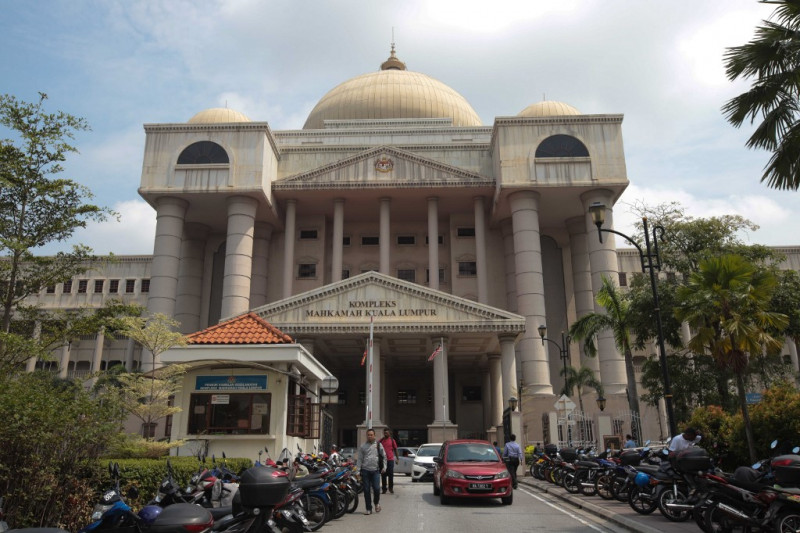KUALA LUMPUR – The Kuala Lumpur High Court’s decision to allow vernacular Chinese and Tamil schools to co-exist with national schools reflects Malaysia’s tolerance and moderation towards the nation’s multicultural nature, said constitutional law expert Datuk Saleem Shad Faruqi.
He was commenting on the decision, delivered at the end of 2021, which effectively dismissed a 2019 application challenging the constitutionality of vernacular schools in the country.
The suit was initiated by the Federation of Peninsular Malay Students, the Islamic Education Development Council and the Confederation of Malaysian Writers’ Association.
They had sought a declaration from the high court that Sections 2, 17 and 28 of the Education Act 1966 – which provided for the establishment of vernacular schools using Mandarin and Tamil as the main language – were inconsistent with Article 152 of the federal constitution and were therefore null and void.
The court, however, ruled that the existence of vernacular schools, as well as the use of Tamil and Chinese languages in those institutions, are in line with the provisions of the constitution.
This gave the nod to 1,800 of such schools in the country, with a total enrolment of half a million students, to continue to operate.
According to Shad, a significant aspect of the ruling was the attention paid by the judge to the history of vernacular education, who interpreted the constitution in light of its history and legislative intention.
Vernacular schools existed pre-independence
“Vernacular schools predate independence and the federal constitution.
“The learned judge took note of the Barnes Report 1951, the Fenn-Wu Report 1951, the Razak Report 1956, the White Paper of the Rulers’ proposals on the status of the official language, and finally the Rahim Talib Report.
“In so doing, the judge found that in these documents, there was never a mention of the abolition of English, Chinese or Tamil language schools,” said Shad.
According to Shad, the basic issue in the case was whether Sections 2, 17 and 28 of the Education Act 1996, which permitted the setting up of vernacular schools, were contrary to Article 152(1) of the federal constitution.
“Why is Article 152(1) important? It declares the Malay language to be the national language of the constitution.
“The second aspect, Article 152(1)(a) provides that the Malay language shall be used for all ‘official purposes’,” said Shad.
The question was whether the use of Tamil and Chinese as the medium of instruction in vernacular schools is an ‘official purpose’, and therefore forbidden by Section 152(1)(a).
“In his learned judgement, the judge noted that although Section 152 gives Malay an exalted position and prescribes that Malay shall be the national language, there are exceptions provided in Article 152(1)(a).
“No person shall be prohibited or prevented from using any other language provided it is not for ‘official purposes’, or from teaching or learning any other language,” added Shad.
Thus, according to Shad, the judge now had to interpret what amounts to an “official purpose” as defined in Article 152(6), which provides that “official purpose” means any purpose of the federal or state governments or of a public authority.
Exceptions in federal constitution allowing vernacular schools to exist
Shad said the court referred to the 1982 case of Merdeka University Berhad v Government of Malaysia in deciding the issue of “official purpose”, and decided that while a university established under the Universities and University Colleges Act 1971 is a statutory and a public authority, a national-type vernacular school is not.
“The use of a non-Malay language for teaching is not for an ‘official purpose’ and is protected by the exception in Article 152(1)(a) of the constitution.
“The judge in deciding the case of the constitutionality of vernacular schools also found strength in the case of Mohd Khairul Azam Abdul Aziz v Menteri Pendidikan (2020), where the Federal Court held that Section 28 of the Education Act 1996, allowed the minister to establish national schools and national-type schools.
“In the same case, schools were exempted under Section 17 of the Education Act 1966, from using the national language as the medium of instruction subject to the national language being taught as a compulsory subject,” added Shad.
The supreme constitution did not create a melting pot. Instead, it allowed the country’s dazzling diversity to manifest itself in a mosaic.
“Perhaps, this is Malaysia’s winning formula for becoming and for remaining at least in our early decades, an example for much of Asia and Africa, as a country where unity did not mean uniformity and where what was sought was unity in diversity.”
On Wednesday, International Movement for a Just World president Chandra Muzaffar said blaming vernacular schools for inculcating divisive politics, racism, and discrimination is reductive and unfair.
Instead, he said, a comprehensive study on the matter should be conducted, as more students of different ethnicities and teachers of different backgrounds attend vernacular schools presently.
Currently, admission to vernacular schools remains open to other races, and vernacular Chinese schools show high enrolments of other races.
SJK(C) Lee Min in Telok Gong, Port Klang, for example, reflects an equal representation of both Chinese and Malay students. – The Vibes, January 16, 2022























